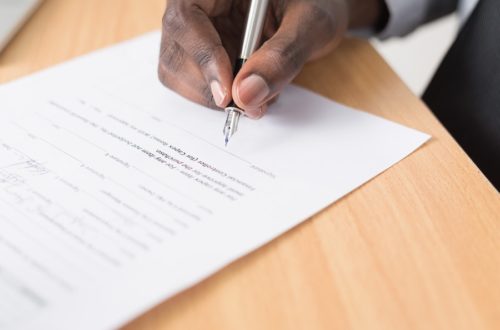Preparing for an expatriation can be overwhelming. We are always afraid to forget important things. After being expatriated six times myself and assisting expats during my 10 years working in the global mobility industry, here is my 10-tip list to prepare a stress-free expatriation!
Expatriating will require clearing up some important elements in your home country and of course, getting ready for your new life in France. The more you anticipate, the easier it will be to have everything ready by the time you travel.

Table of Contents
Sort out your local situation
Inform your local administrations
You may be pretty settled in your current country of residence or your home country. So many things are in place for a while, that you don’t even realise that leaving the country will require you to change your information or close some contracts or direct debits. This checklist will help you get organised and not forget the most important things.
Depending on your situation, the list of administration to inform may vary. You may need to add your pension fund, and child benefit administration.
Go to your bank
I always make an appointment with my banker before expatriating. You may need to adjust a loan repayment or renegotiate a mortgage. You want to make sure to have some cash flow when you relocate, as you will have many expenses when first arriving (Short-term accommodation, security deposit, first-month rent, residence permit fees…).
Inform your tax office
Moving countries may have an impact on your tax residence depending on many criteria (Duration of your stay, origins of income, bilateral agreements, residence location of your family…). To make sure you don’t keep paying taxes in your current country of residence, it is advised to inform your tax office of your expatriation. I’m not a tax expert, only tax lawyers and tax offices can give appropriate advice based on your situation.
Local National healthcare
Depending on your current country of residence, you may need to inform your local public health insurance that you are moving abroad.
If you are currently living in another European country and are registered for public healthcare, it is important to request an S1 Form. It is a Certificate of entitlement to healthcare if you don’t live in the country where you are insured. It will give information to French healthcare about your rights in your previous European country of residence and will facilitate your registration.
Redirect your postal mail
You may not have a new address yet, but you can redirect your mail to one of your close relatives.
3 months before my relocation, I make a list of the important postal mail I receive and arrange the change of address shortly before my travel.
Terminate your contracts
For sure, you have several direct debits and ongoing contracts you may need to cancel. Check, in advance, the break conditions of your contract and the notice period. In some countries, international relocation is a motive to shorten the break close. Here are some examples:
- Housing (rental contract, utilities, housing insurance)
- Phone
- Insurances
- All local subscriptions
Prepare a proxy for a relative
If you have some pending administrative processes, you may need to put in place a proxy for a relative to manage those on your behalf.
You have now sorted the main elements in your home country or current country of residence; it is now time to tackle the preparation for your future life in France! The better you prepare yourself, the easier it will be once you have arrived!

Get ready for France!
Get your travel documents
Check that all family members’ passports are valid (more than 6 months to enter a country).
Apply for a visa if you need one. If you are not sure, contact the French consulate of your current country of residence.
Book your travel tickets in advance.
Anticipate your move
If you send your household goods to France, you will need to make a detailed inventory of your belongings for customs and insurance purposes. If you are not bringing your heavy furniture, start preparing a garage sale or a storage rental.

Which administrative documents to bring
It is essential to prepare your original administrative documents carefully as you will need them for many administrative processes once in France. This list will help you to bring the main ones:
- Diplomas
- Passport
- Marriage contract (Apostilled/legalize if required)
- Important invoices
- Birth certificates with filiation (Apostilled/legalized if required)
- Minimum 4 ID photos following the Prefecture requirements
- Every original document that was required by the French consulate for your visa request (the list varies depending on the type of visa).
- Proof of financial resources in your country of origin (may be required for healthcare application in France)
- U2 form if you benefit from unemployment benefits from your previous EU country of residence
- Request an international driving licence (for non-EU citizens)
Scan every important document. Save them on a drive, a cloud, on your email… anywhere easy to reach and not lose.
Plan your health coverage
Health-related documents:
- S1 form (if applicable) as mentioned in the first part of the article
- Or Attestation proving the end of your healthcare rights in another EU country
- Apply for a European Health Insurance Card from your National Health Service if you are staying in Europe.
- International vaccination cards, blood group cards, health records, prescriptions and X-rays
Take out international private health insurance to cover you for the first few months if you do not have a job in France (check if it covers for to cover medical expenses, repatriation assistance, personal liability, etc.).
Get a medical check-up for each family member (doctor, optician, dentist, etc.) Keep your X-rays and take prescriptions for any drugs you’ll need in your destination country.
Anticipate your finances
Get Euros to facilitate your first local expenses.
Your bank may also offer some international services that could be useful to you. It may even have an agreement with a bank in France, that will ease your bank account opening process once you have relocated.
Housing and school
Book your short-term accommodation for your first few weeks to have time to find more permanent accommodation. I would recommend booking a minimum of 3 weeks with the possibility to extend.
Check the schools’ options (public and/or private schools). Ideally, the inscription should be done by June at the latest (for public schools) in preparation for the start of the school year in September.
Start looking for a job
If you are coming to France to look for a job, it is important to start gathering as much information before your departure. This will help you know more and the French job market in your specific line of work.
It is strongly recommended to learn some French before relocating, as language will be one of the main difficulties to find a job. Depending on where you are moving to, you may also be able to find some English-speaking positions.
You are now starting to be pretty ready to start your new adventure! Get your suitcase ready following my 10 tips to pack your luggage for your expatriation and organise your leaving party!
I hope you have found this article useful, would you add any other topics to this list? Let me know in the comments section!
Liked this post? Pin it for later!




